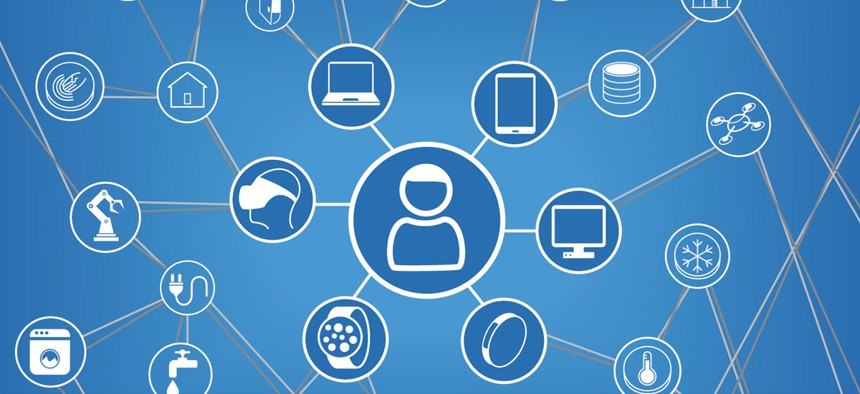DOE Lab Asks Industry: How Can We Secure the Internet of Things?

a-image/Shutterstock.com
A better authentication system could protect home appliances and drones, according to a new solicitation for industry partners.
The Energy Department’s Sandia National Laboratories want to make the Internet of Things -- such as home alarms and motion sensors -- hack-proof.
In a solicitation for industry partners, Sandia announced plans to bring "active authentication technologies" to market -- applications could include the protection of digital cash transfers over smartphones, home appliances and smart meters, point-of-sale systems, and "unspoofable drone command," among others.
Sandia National Laboratories, part of DOE's National Nuclear Security Administration, is managed by Lockheed Martin subsidiary, the Sandia Corporation.
The authentication technology is meant to prevent digital identity theft using "Quasi-Physically Unclonable Digital Identification." That's a variation of "Physically Unclonable Functions," which describe systems that can be used to to generate encryption keys or random numbers and authenticate devices.
A more secure system, according to the solicitation, would rely on an "unreplicable data scrambling physical medium" at one end of a transfer and, later, a "corresponding device specific descrambler/software to authenticate the device."
The system would also “combine the unique device identity with a dynamic human identity creating a true two-factor authentication," the solicitation said.
DOE representatives did not respond to Nextgov's request for comment.
(Image via a-image/ Shutterstock.com)





